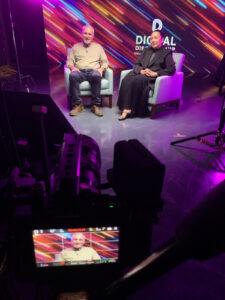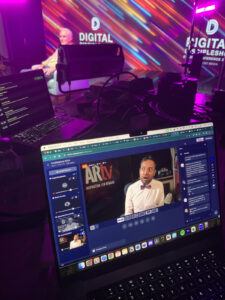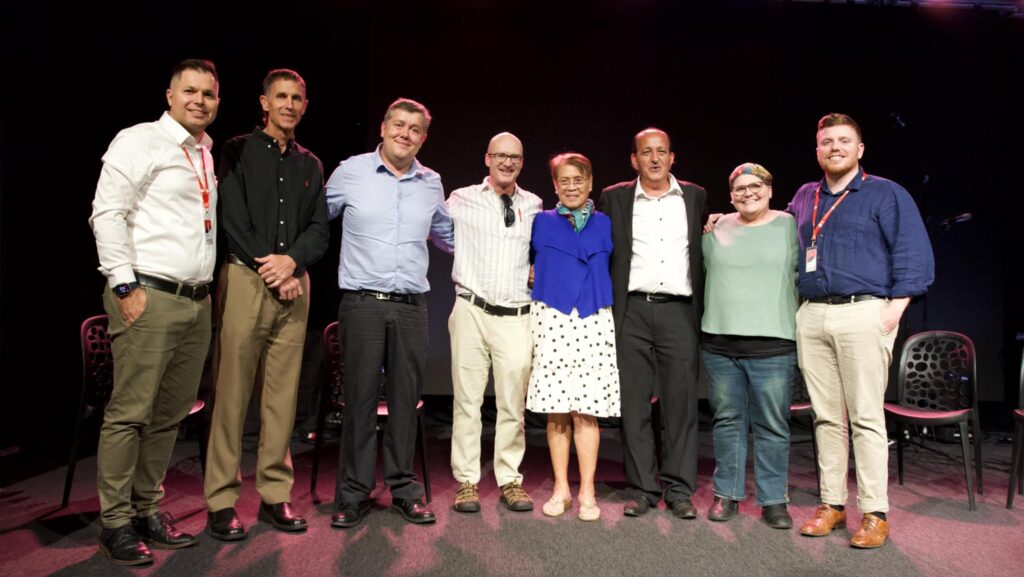More than 1200 people from around the world registered to learn professional secrets to digital evangelism at this year’s Digital Discipleship Conference on March 9. Hosted by Adventist Media (AM), the conference connected a diverse global audience with its online format, livestreamed on YouTube and Facebook.
Jan Rhais, AM marketing assistant and event co-organiser, shared insights into the conference’s impact. “We had an average of 126 concurrent viewers throughout the 9-hour livestream, with numbers peaking at 174. The engagement levels were truly inspiring, with the conference amassing a total of 67,662 view minutes—half of those from outside the South Pacific Division,” Mr Rhais said.
Around 90 people also watched the conference from the viewing hubs at Fulton Adventist University College in Fiji and Avondale University in Cooranbong (NSW).
The event featured insights from leading digital evangelists, including Omar El-Takrori from Think Media and Pastor Benjamin Lundquist from The Rise and Lead Podcast, alongside discussions on the psychological impacts of social media use, such as navigating its challenges and preventing burnout among content creators.
Feedback from participants highlighted the practical applications of the presentations. “The response to our sessions, particularly those on managing content creation to prevent burnout and the practical use of social media by churches, was overwhelmingly positive,” said Mr Rhais.
The conference also laid the groundwork for future initiatives, including specialised training and the development of a comprehensive digital discipleship website offering courses on various topics from graphic design to storytelling.
Looking ahead, organisers are planning targeted workshops for regions with unique digital landscapes. “One example is Papua New Guinea, where most people there don’t have access to social media and WhatsApp is one of their primary sources of communication and evangelism. Conducting future specialised seminars that targets local mode of communication is a must,” Mr Rhais explained.
You can watch the event here and the presentations will be cut into smaller clips for ease of use in the future.










